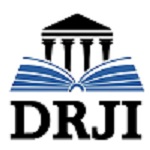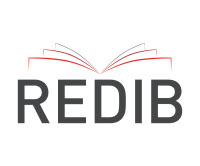Estudo piloto: um processo importante de adaptação e refinamento para uma pesquisa quase experimental em aquisição de l2
DOI:
https://doi.org/10.21680/1517-7874.2018v20n1ID13201Palavras-chave:
Estudo Piloto, Planejamento, Planejamento Estratégico, ASLResumo
Com o objetivo de refletir sobre os processos de mudança pelos quais um projeto de pesquisa e um pesquisador iniciante passam ao conduzir estudo piloto, espera-se que o presente trabalho possa somar-se ao corpo de pesquisa em Linguística Aplicada, no caso, o ensino de Inglês como segunda língua no Brasil. Dessa forma, o enfoque dessa análise volta-se para o método, com seus instrumentos e procedimentos, e os dados advindos de um estudo piloto de uma pesquisa de mestrado desenvolvida em um contexto escolar. Por fim, a reflexão sobre esse movimento aponta para benefícios no que toca o refinamento de instrumentos e procedimentos, bem como o amadurecimento do pesquisador que coloca o plano de pesquisa em prática nesse momento. Assim, todos esses processos, do planejamento à análise dos dados do piloto, somam-se a fim de contribuir para que a coleta de dados definitiva ocorra de maneira adequada.
Downloads
Referências
BAILER, Cyntia; TOMITCH, Leda Maria Braga; D’ELY, Raquel Carolina Souza. Planejamento como processo dinâmico: a importância do estudo piloto para uma pesquisa experimental em linguística aplicada. Revista Intercâmbio, v. XXIV: 129-146, 2011. São Paulo: LAEL/PUCSP. ISSN 2237-759x.
BALEGHIZADEH, S. The effect of pair work on a word-building task. ELT Journal. 64 (4), 2010 p.405-413.
BENISS, A. and BAZZAZ, V. The impact of pushed output on accuracy and fluency of Iranian EFL learners’ speaking. Iranian Journal of Language Teaching Research. 2(2), 2014 p. 51-72.
CANHOTA, C. Qual a importância do estudo piloto? In: SILVA, E. E. (Org.). Investigação passo a passo: perguntas e respostas para investigação clínica. Lisboa: APMCG, 2008. p. 69-72.
D’ELY, R. A focus on learners’ metacognitive processes: the impact of strategic planning, repetition, strategic planning plus repetition, and strategic planning for repetition on L2 oral performance (Unpublished doctoral dissertation). Universidade Federal de Santa Catarina, Florianópolis, Brasil, 2006.
DORNYEI, Z. Research Methods in Applied Linguistics: Quantitative, qualitative and mixed methodologies. UK: Oxford University Press, 2007.
ELLIS, R. Task-based language learning and teaching. Oxford: Oxford University Press, 2003.
FARIAS, P. Task-Test: what lies beyond implementing a task-based assessment? Comparing learners' performance and unveiling learners' perception in a testing situation (Unpublished undergraduate dissertation). Universidade Federal de Santa Catarina, Florianópolis, Brasil, 2014.
FOSTER, P. & OHTA, A. S. Negotiation for meaning and peer assistance in second language classrooms. Applied Linguistics, 26 (3), 2005 p. 402-430.
FOSTER, P. TONKYN, A. & WIGGLESWORTH, G. Measuring Spoken Language: A Unit for All Reasons. Applied Linguistics, 21, 2000, p. 354-75. doi:10.1093/applin/21.3.354
HYDE, M. Pair work – a blessing or a curse?: an analysis of pair work from pedagogical, cultural, social and psychological perspectives. System, Vol. 21, No. 3, 1993 p. 343-348.
LEVELT, W. J. M. Speaking: From intention to articulation. Cambridge, MA: The MIT Press, 1989. p. 543.
LYNCH, T. MACLEAN, J. Exploring the benefits of repetition and recycling of a classroom task. Language Teaching Research. n. 4/3 p. 21-250, 2000.
LYNCH, T. MACLEAN, J. A case of exercising: Effects of immediate task repetition on learners’ performance. In BYGATE, M., SKEHAN, P., & SWAIN, M. (Eds.), Researching pedagogic tasks second language learning, teaching and testing. Harlow: Pearson Education, 2001. p. 141-162.
LONG, M.H. Focus on form in task-based language teaching. In LAMBERT, R. L. and E. SHOHAMY, E. (Eds.), Language policy and pedagogy, 2000 p. 179-192. Amsterdam: Benjamins.
MACKEY, A.; GASS, S. Common data collection measures. In: ________. Second Language Research: methodology and design. Mahwah: Lawrence Erlbaum, 2005. p.43-99.
MEHNERT, U. The effects of different lengths of time for planning on second language performance. Studies on second Language Acquisition, 20, 1998 p.83-108.
MICHEL, M. Complexity, Accuracy and Fluency in L2 Production. In: LOEWEN, S., SATO, M. The Routledge Handbook of Instructed Second Language Acquisition. New York: Routledge, 2017 p. 50-68.
ORTEGA, L. Planning and focus on form in L2 oral performance. Studies in Second Language Acquisition, 1999.
SCHMIDT, R. "Attention." In P. Robinson (Ed.), Cognition and second language instruction. 2001 p. 3-32. Cambridge University Press.
SILVA, L. H.; OLIVEIRA, A. A. S. Contribuições do projeto piloto à coleta de dados em pesquisas na área de educação. Revista Ibero-Americana de Estudos em Educação. v. X, 1: 225-245, 2015. Araraquara: UNESP/Universidad de Alacalá. ISSN 2446-8606
STORCH, N. Relationships formed in dyadic interaction and opportunity for learning. International Journal of Educational Research. 37: 2002 p. 305–322
SWAIN, M. Communicative Competence: Some roles of Comprehensible Input and Comprehensible Output in its Development. In: GASS, S. & MADDEN, C. (Eds.), Input in second language acquisition. 1985 p. 235–253, Rowley, MA: Newbury House.
SWAIN, M. The output hypothesis and beyond: Mediating acquisition through collaborative dialogue. In: LANTOLF, J. P. (ed.) Sociocultural Theory and Second Language Learning. 2000 p. 97-114). Oxford: Oxford University Press.
SWAIN, M. Integrating language and content teaching through collaborative tasks. The Canadian Modern Language Review, 58 (1), 2001 p. 44-63.
SWAIN, M. LAPKIN, S. The evolving sociopolitical context of immersion education in Canada: Some implications for program development. International Journal of Applied Linguistics, 15(2), 2005 p. 169–18
TAVAKOLI, P. ,SKEHAN, P. Strategic planning, task structure, and performance testing. In R. Ellis (Ed.), Planning and task performance in a second language 2005 p. 239 – 277). Amsterdam: Benjamins.
XHAFAJ J, D. C. P. MUCK, K.E. D'ELY, R.C.S.F. The impact of individual and peer planning on the oral performance of advanced learners of English as a foreign language. Linguagem & Ensino (UCPel. Impresso) , v. 14, 2011 p. 39-65.
XHAFAJ J, D. One is good, two is better: Investigating the impact of peer-planning in the oral performance of intermediate L2 English learners. (Unpublished undergraduate dissertation). Universidade Federal de Santa Catarina, Florianópolis, Brasil, 2013.
Downloads
Publicado
Como Citar
Edição
Seção
Licença

Este trabalho foi licenciado com uma Licença Creative Commons - Atribuição - NãoComercial - CompartilhaIgual 3.0 Não Adaptada.

 Português (Brasil)
Português (Brasil) English
English Español (España)
Español (España)









.jpg)




